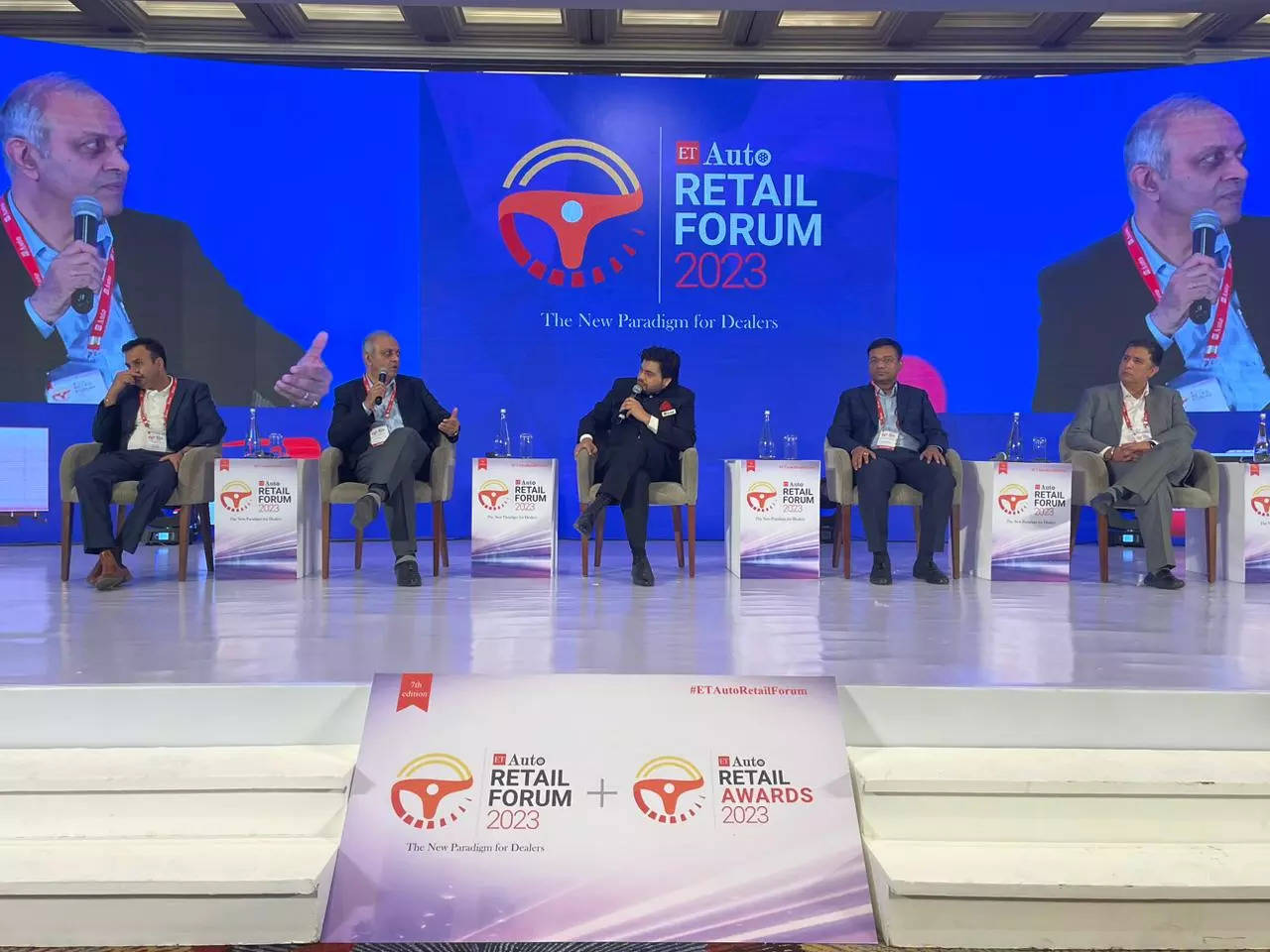
New Delhi: The changes in sales concepts and customer relations, the emergence of more informed customers who are also prepared for change and ready to wait for the right product-mix, the possibility of the arrival of more products for the customers to select from, and the importance multibrand dealership for a sustainable business were the important points that dominated the presentations and discussions on ‘The New Paradigm for Dealers’ at the 7th edition of ETAuto Retail Forum on Thursday.
Sanjay Gopalakrishnan, Head Electric Passenger Vehicle, BYD, said Three or four paradigm shifts are happening at the automotive dealership level with the arrival of the electric vehicles. First is the mindset that it is concept selling, that you have to sell a concept rather than a product. The second is the awareness that EV is a long-term, not short-term, business. The next thing is that the salespeople and sometimes the technical people in the dealership have to be specially oriented to sell electric vehicles, mainly on the service side. Even though people don’t come in for service regularly, customers would keep asking a lot of questions even after they buy an EV from the dealership. Finally, there is a need for specific technical and specialized advice at the dealership for the customers.
“We are the first company to sell electric vehicles in India. We started when it felt like it had been an interesting journey because we had a lot of dealers and authority callers who were traditionally selling ICs. However, they are now selling out of separate showrooms and only selling electric vehicles. I think the mindset has to change because they’re only going to sell electric vehicles. They’re making long-term stock a short-term business because there is no service attached to it as we have in ICE engines,” he said.
Saurabh Kedia, Director and Dealer Principal, Shree Automotive, said, “I think there are two segments that we need to understand. One is mass transit. We have the buses, which will have a larger impact as far as electric mobility goes. But in the car segment, I think today’s customers are a lot more aware and a lot more ready for the change. Most of the people I am interacting with believe that in the next couple of years, a large number of products will enter the market and that they will have a wide range of options, just as they do now in ICE.”
“They would like to wait for that choice once it comes. Today, consumers are ready to make the shift. It is only a question of getting the right mix. The right product strategy or the right pricing point you can provide with the right features that I think customers are ready to do,” he added.
Saral Talwar, co-founder and Direct Sales, Bikewo, said, “Multibrand is something that is very new for India. When it started there was a lot of resistance from most of the top brands because earlier multi brand was considered as a sub dealer. But now there are a number of players especially for two and three wheelers, maybe not as much for four wheelers and buses. Two-wheelers are pretty mature now. There are 300-400 players in India, out of which about 200-300 are importers. But people can recall only three or four names like Ola, Ather and Hero.”
“For any dealer, it is going to be impossible to make money with a single brand. If you have only one brand, there is no guarantee that the brand is going to continue supply, there is no guarantee that the brand will just give you all the models, there is no guarantee that the brand will have enough money to pump in new models and new development. With multibrand, at least all these problems are taken away. Something new will be available to the dealer to sell and he will always have a choice,” he added.
Talking about the used car market, Ravi Mehra, Founder and CEO, Sheerdrive said, “Exciting times are ahead for the used car market, as strong upgrade programs and clear communication of buy back values will drive easy adoption and conversions for EVs.”
“OEMs and new car dealerships have a clear advantage in the EV battery supply chain. Looking ahead, we can expect to see these players taking a more active role in the pre-owned retail space, leveraging their access to cheap supply aggregation, high-quality sales teams, spares, and real estate to set up viable pre-owned certified programs in their micro markets. The emergence of SaaS and tech platforms that integrate with current ecosystem players will further strengthen this trend,” he said.














